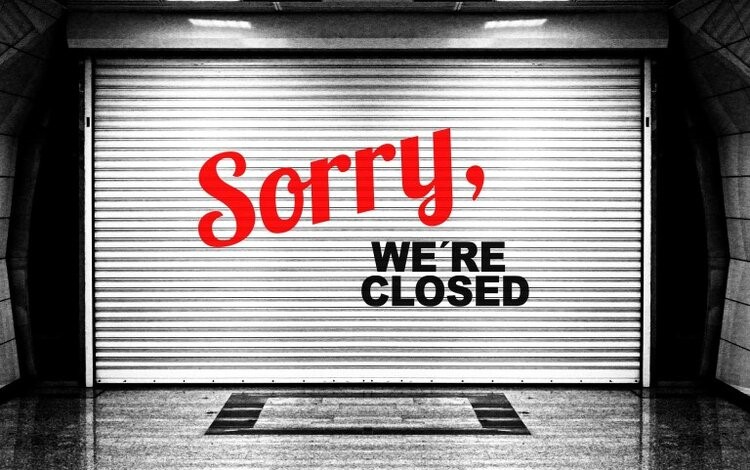Bottom line: don’t close up shop before consulting with a business broker.
Why Not? How Will This Help?
1. A business that is losing money can be attractive to a buyer. I have some buyer-side clients who only want to look at that kind of business! For almost all transactions, the buyers believe that they can run this business profitably and pay down any acquisition debt or create return on their cash investment on top of whatever revenue-expense model you had going on. In other words, they think they can run it as well as or better than you did. It doesn’t matter to them where you ended up, it matters where they think they will end up. The earlier you come to your business broker to sell a business when for one reason or another it is no longer meeting your goals, the better the odds of getting a fair price for it.
2. If you’re a small business, your corporate veil has a lot of holes in it. You’ve got personal guarantees everywhere. Of course, there are legal, semi-legal and plain shady solutions to that problem, but this is hardly a strategy that is going to play out well in the long term. It’s going to follow you around, as will an army of collection agents waiting for you to slip up.
3. A closed business is worth nothing to a buyer. Keep operating as long as possible, even if only with limited offerings. If you’re really closed for more than a few days, your business becomes truly worthless, beyond whatever the inventory will fetch, and since everyone will know where it comes from, nobody is going to pay a fair price even for that. While you’re closed, even your raving fans will have to find other sources for whatever you are supplying. Eventually, those will become their go-to solution. What, then, would a buyer be purchasing? Your customers have left, your inventory is aging, and the many little daily clean-up things a facility requires are turning into major makeovers being required. It will cost you more than the items are worth to remove the furnishings, fixtures and equipment, and where would you take them? The next tenants (if they are in a related line of business) will fall in on those for free. But if you are still operating, even in a reduced mode, a buyer can see that customers are still coming and it’s going to take a while if their idea is to just wait you out. At that point, if the concept is sound and the location is suitable, they’ll often be willing to cut you a deal to walk into a going concern and (as noted above) start making money by not making the mistakes they think you made that they wouldn’t. It’s not your problem as to whether they are right or not!
I had a potential client come to me to sell their restaurant. It was “temporarily closed” due to COVID. They were hoping someone would at least give them the value of their equipment. In some cases, that might be true, but at that time restaurants were closing all over the place and restaurant equipment was almost worthless unless you were going to operate one in that same location. This location was a shopping center – more of a one-level mall, really – that was half-vacant, which was a shame because it was a very attractive environment for hanging out in, except that nobody was allowed to hang out any more. I said I wouldn’t take the listing unless he could stay open in some manner, even if with only 2-3 of his best-selling recipes that were best sellers and easy to maintain in hot trays or even re-heat, so that he could provide takeout with minimal expenses and no other staff. He seemed to be too spooked or too cash-drained to go that route, and we went our separate ways. A few months later he called back, wanting to sell a restaurant. “Didn’t we have this conversation already? And now you’re even further down that road?”, I asked. “Well, yes, but …” he explained. “I did what you said and now that location is coming back and the restaurant is doing OK. I don’t want to sell that one, it’s another one. It’s doing all right but I don’t have the energy to manage so many locations and my other business interests.”
We’ve done deals where the business sold for a dollar (to the seller – the buyer paid out minimum commission). The landlord was happy and waived the unpaid lease payments, the buyer was happy because they got an operating business for the price of our minimum commission, and the seller was happy because not only could they stop shoveling money into the business but they were freed from long-term debt issues. That’s the worst case. If you plan ahead, you can do better than the worst case.
There are few business situations so dire that you can’t hold on for a few more days while you call your business broker and see what your options are. But some of them might take some time to get through, so don’t wait until the last minute.
If you need help thinking about the possible value of your business, or what you can do to optimize that before selling, use this link to set up a call.





0 Comments